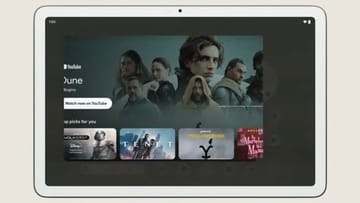New Pixel Watch, Pixel Tablet and more presented
Google is bringing the hardware offensive more into competition with manufacturers of Android devices such as Samsung. The Internet company, as the developer of the Android operating system, has so far held back a little in the hardware business. Now head of equipment Rick Osterloh emphasized the advantages of a seamless interaction of different devices.
After a long break, a tablet is planned again for the first time
For Google, the tablet device category is almost new. A few years ago, Google had shown a really great tablet with the Pixel C 2015 – but it was mainly due to the lack of tablet support for Android – and was not shown.
At the I/O, Google showed that Android finally wants to offer its own apps in a separate tablet view and also show tablet-optimized apps in a special section of the Playstore. In principle, Apple has been doing this since the launch of the iPad – and can therefore also boast a significantly larger user base for tablets. Google is taking a long overdue step here.
The Pixel tablet will not be released until 2023 – there was not much more to learn about it either.
Group shows prototypes of translation glasses
Google is working on computer glasses that can automatically display translations in the wearer’s field of vision. The Internet giant showed a prototype of the device in a video in action at the start of its developer conference Google I/O.
There was no information on technical details such as battery life. On the outside, however, the device looked like a conventional horn goggle except for the slightly wider temples.
The technology used to display digital content in real environments – on displays or directly into the user’s field of vision – is called “augmented reality” (AR, augmented reality). It is already known that Apple and Facebook, among others, are also working on AR glasses. Three years ago, the German Bosch Group already showed the prototype of glasses that can, for example, show the user arrows for navigation instructions.
Google was already a pioneer in computer glasses in 2012 with the Google Glass, which had a small display and a camera. In addition to technical weaknesses, however, data protection concerns were fatal to the device. Unlike the Google Glass, the new glasses apparently do not have a camera, but can record the spoken language with a built-in microphone.

